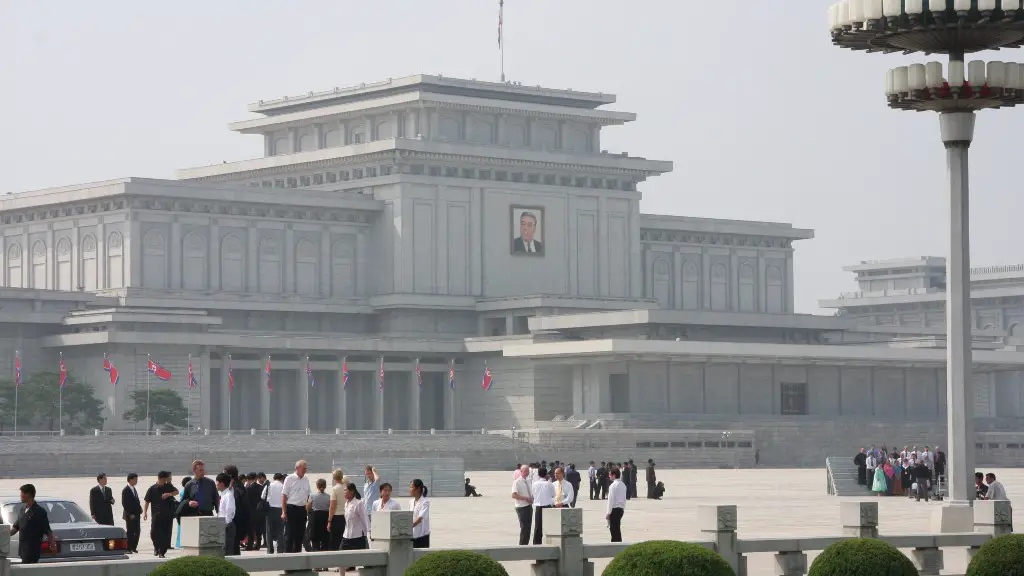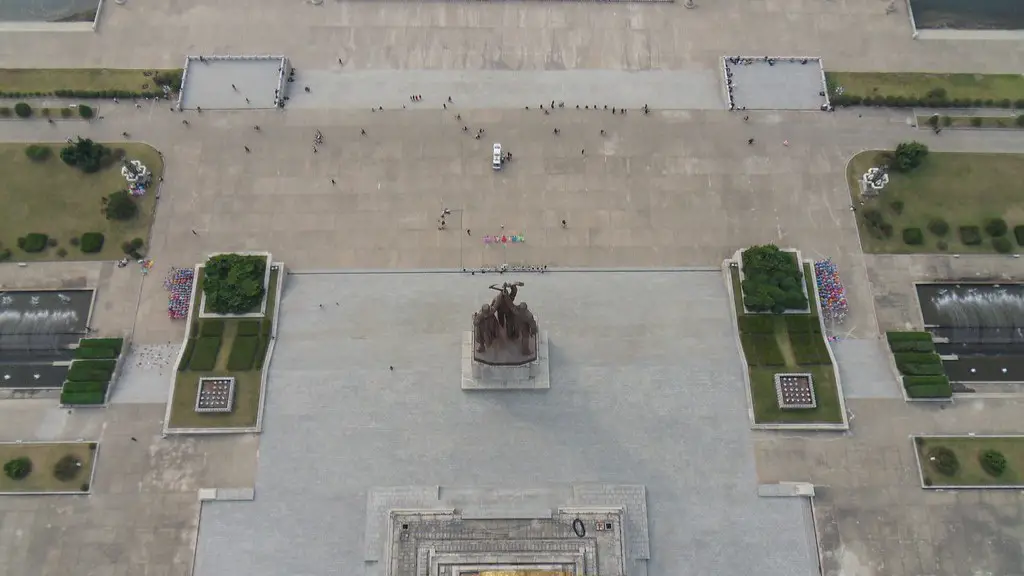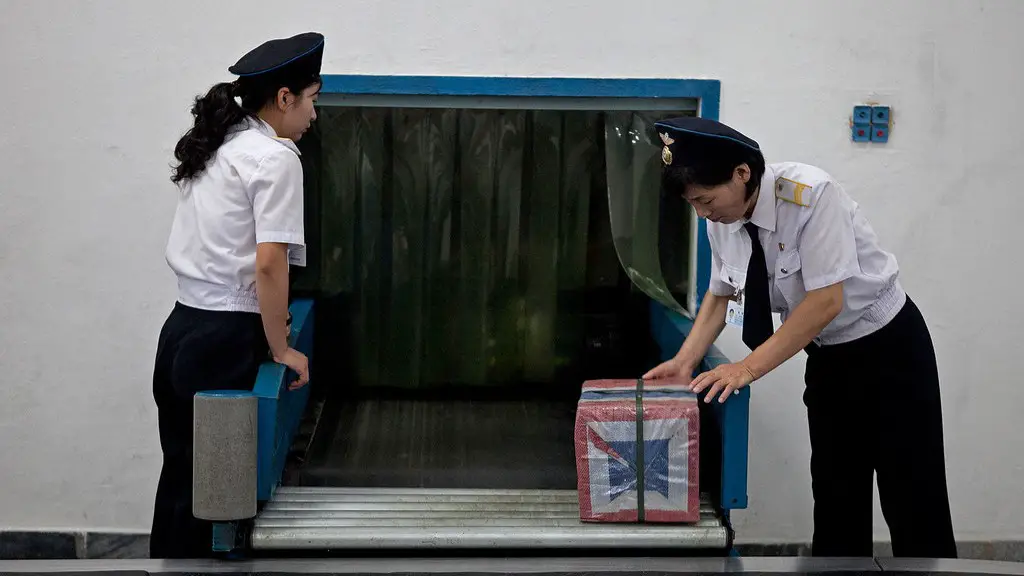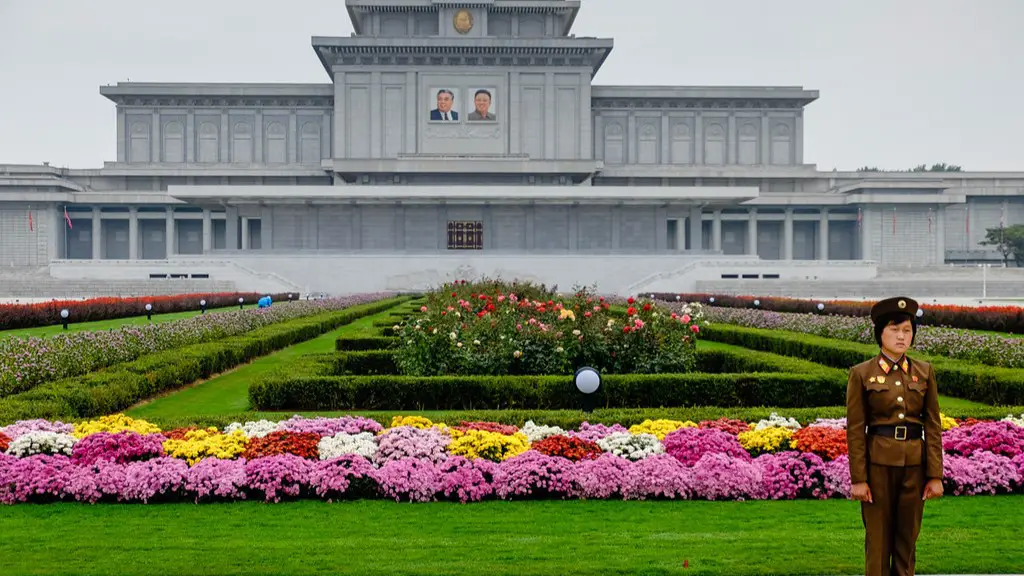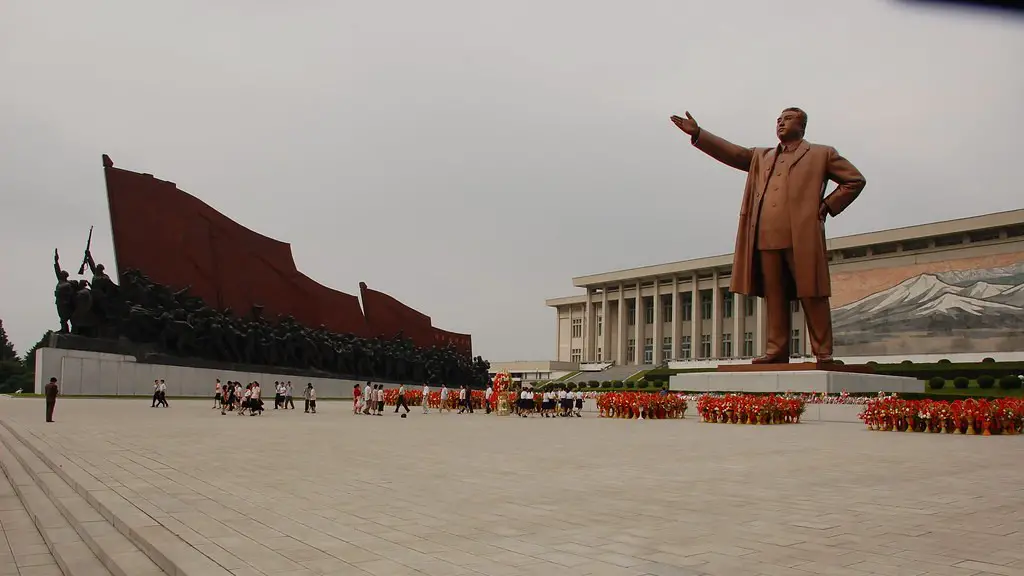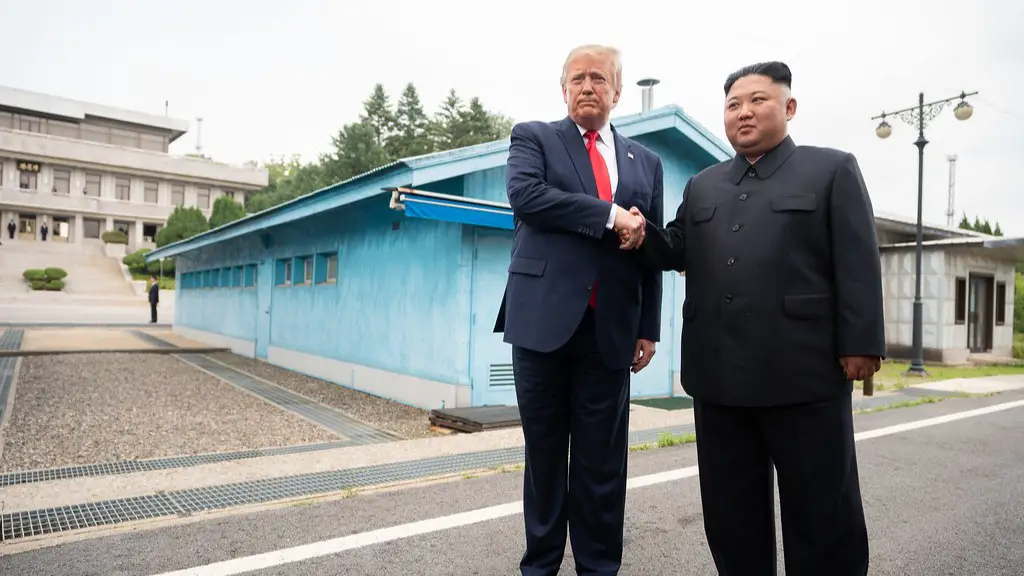The Rise of Unrestricted Government in North Korea
In 1945, at the end of World War II, the Korean Peninsula was divided in two. The North was taken over by the Soviet Union, while the South was occupied by the United States. This separation ultimately led to the establishment of the Democratic People’s Republic of Korea in the North and the Republic of Korea in the South. Since then, North Korea has been ruled as an authoritarian and heavily-militarized state with a complete lack of political and individual freedom. The North Korean government is widely considered to be an “unlimited government” due to its virtually unchecked control over all aspects of life within the country.
The origins of this system of government can be traced back to the leadership of Kim Il-sung, who gained control of the country following its establishment in 1948. During his reign, Kim Il-sung imposed his rule through a series of draconian laws and oppressive tactics. These included the introduction of harsh punishments for those who challenged the rule of the government, the elimination of basic civil liberties and rights, the elimination or restriction of foreign media and communications, and the implementation of a single-party system in which only the ruling party has any say in governmental policy.
The lack of a meaningful political opposition or civil society in North Korea has enabled the government to act with impunity. This has resulted in systemic human rights violations, including the arbitrary arrest and detention of political dissenters and the use of torture and forced labor. Meanwhile, the North Korean economy is characterized by a centrally planned system in which the government controls access to resources and actively restricts the activities of foreign businesses. This means that average citizens have limited access to food, medical care, and other essential services.
The situation in North Korea has been further compounded by the Kim family’s continued rule. In 1994, Kim Il-sung passed away and his son, Kim Jong-il, assumed power. Following his death in 2011, Kim Jong-un was chosen to carry on the legacy. Under the rule of the Kim dynasty, the government has remained virtually unchallenged and, as a result, the people of North Korea have had no meaningful opportunity to affect governmental policy or hold the government accountable for its actions.
The effects of North Korea’s unrestricted government have been dire. According to a report from the United Nations, North Korea’s human rights situation is “among the worst in the world” and has resulted in “systemic and widespread violations.” For instance, the UN estimates that over 200,000 people are currently being held in political prisons or concentration camps, with many more living in extreme poverty and facing daily struggles for food, shelter, and basic rights. Furthermore, the UN estimates that up to one quarter of the population is facing food insecurity and is in need of humanitarian assistance.
Despite international criticism and condemnation, the government of North Korea has remained largely unresponsive. The United Nations has adopted a variety of resolutions urging the North Korean government to improve human rights conditions and allow greater access to basic services, but these have largely been ignored. Meanwhile, the government has continued to invest heavily in its military and aggressively pursue its nuclear ambitions, indicating a lack of commitment to the betterment of its citizens.
Consequences of Unrestricted Government
The consequences of North Korea’s unrestricted government have been far-reaching, both within the country and beyond its borders. Internally, the lack of basic rights has led to an environment of fear and repression, with citizens either unwilling or unable to challenge the government’s policies and practices. This has led to a situation in which the government faces little pushback from the public and is able to pursue its agenda without fear of retribution or criticism.
The consequences of North Korea’s unrestricted government are also felt internationally. The country’s continued development of nuclear weapons and aggressive rhetoric has resulted in increased tensions with the United States, South Korea, and other countries in the region. Further, the human rights situation in North Korea is of major concern to the international community, and the government’s refusal to halt its nuclear program and address the issue has resulted in major diplomatic disputes.
Finally, the ongoing human rights crisis in North Korea has had a devastating impact on the country’s population, with countless civilians suffering due to the government’s oppressive policies and disregard for basic rights. This is particularly true for those living in poverty, as the government’s harsh economic measures have made it increasingly difficult for them to meet their basic needs.
Reasons for Unrestricted Government
North Korea’s authoritarian system of government is the result of decades of careful planning and strategy by its leaders. From the beginning, Kim Il-sung and his successors have sought to control all aspects of life within the country and eliminate any possibility of dissent or opposition. To this end, they have systematically eliminated basic civil liberties and rights, prohibited foreign media and communications, and heavily invested in military power as a means of control.
One of the main tools used by the government to maintain its power is propaganda. Through the use of strict media control, the government has been able to manipulate the narrative and turn the population against those who would challenge the regime. Furthermore, those who oppose the government and its policies have been systematically silenced and intimidated into compliance, with grave consequences for those who dare to voice their dissent.
The other primary reason for North Korea’s unrestricted government is its devotion to self-preservation. The Kim dynasty has succeeded in creating a closed-off society in which the government can remain in power and the population is too scared and powerless to challenge it. This has ensured the continued survival of the regime and ensured that any attempts to change the system are quickly stamped out.
International Efforts To Change The System
Given the devastating effects of North Korea’s unrestricted government, many international actors have made concerted efforts to bring about change. Foremost among them is the United Nations, which has adopted several resolutions calling for improved human rights conditions and access to basic services. While these efforts have been largely unsuccessful, they have nonetheless put pressure on the North Korean government to improve its policies and allow greater access to basic rights.
The United States has also taken a leading role in advocating for change in North Korea. The administration of President Barack Obama implemented a series of economic sanctions aimed at pressuring the regime to address its human rights issues and take steps towards denuclearization. However, these efforts have been largely unsuccessful, as the regime remains committed to its aggressive military policies and has yet to fully comply with the international community’s demands.
Finally, countries in the region have also tried to use diplomatic channels to bring about change in North Korea. However, their efforts have largely been unsuccessful due to the regime’s intransigence and unwavering commitment to its own interests. This has left countries like South Korea, Japan, and China in a difficult position as they seek to balance their own interests with their desire to promote human rights and security in the region.
Humanitarian Aid & Goals Moving Forward
Although the international community has been largely unsuccessful in its efforts to pressure North Korea to change its policies, there have been some successes. For instance, the United Nations and international aid agencies have been able to provide some level of humanitarian aid to those North Koreans in need. This includes food aid, medical supplies, and other essential services.
Moving forward, it is important for the international community to continue putting pressure on the North Korean government to improve its human rights conditions and allow for greater access to basic services. To this end, the UN and individual governments should continue to implement sanctions and diplomatic initiatives aimed at bringing about change. Ultimately, the ultimate goal should be the establishment of a more open and just society in North Korea where all citizens can benefit from its resources and enjoy full political and individual rights.
Regional Security Implications
Finally, it is important to consider the security implications of North Korea’s unrestricted government. The country’s continued pursuit of nuclear weapons has created a serious security threat that could have far-reaching consequences for the region and the world. As such, it is vital for the international community to consider diplomatic efforts that could lead to the de-nuclearization of the Korean Peninsula and the establishment of a more stable security environment.
In this regard, the United States and China have both floated the idea of a “freeze for freeze” agreement in which North Korea would commit to a complete freeze of its nuclear program in exchange for the suspension of military exercises by South Korea and the United States. While the idea has been met with hesitancy from both sides, some analysts argue that this could be the first step towards a lasting peace.
Ultimately, North Korea’s unrestricted government poses a major security threat to the region and the world and must be addressed in a meaningful way. The ultimate goal should be the establishment of a more just and open society in North Korea wherein all citizens can benefit from its resources and enjoy full political and individual rights.
